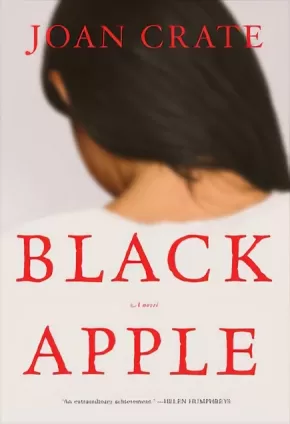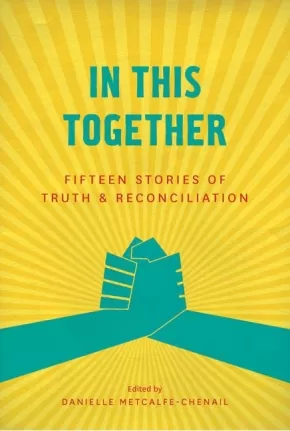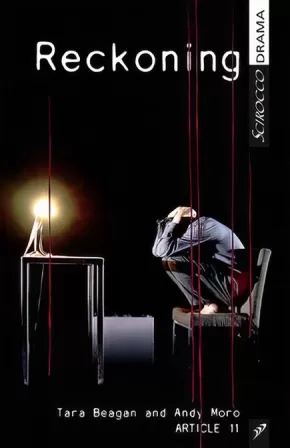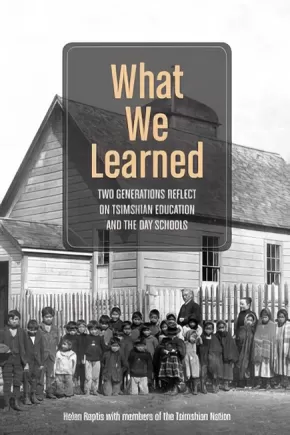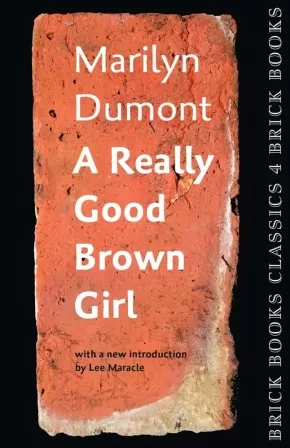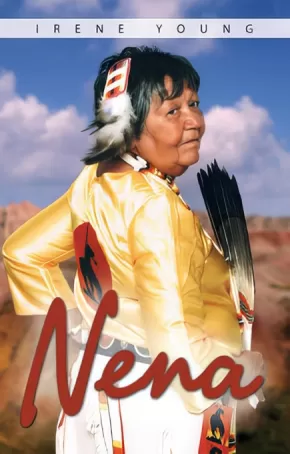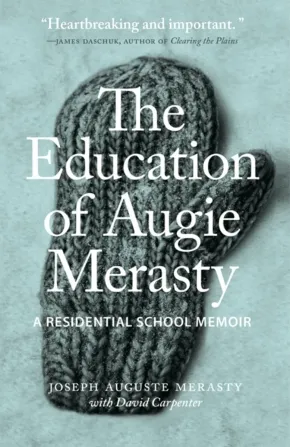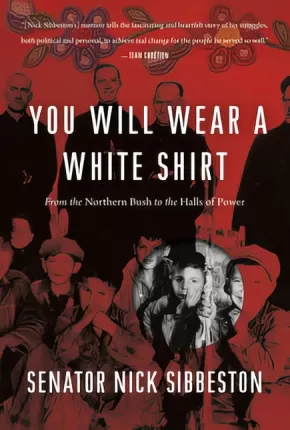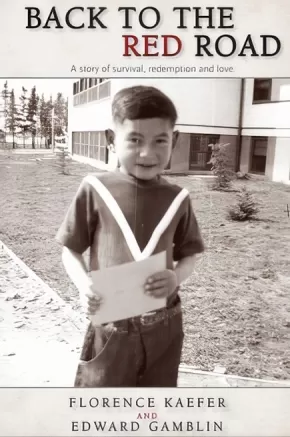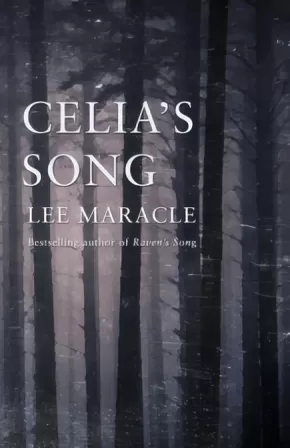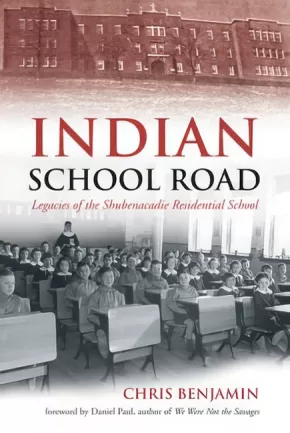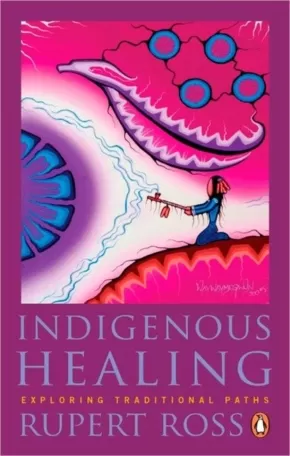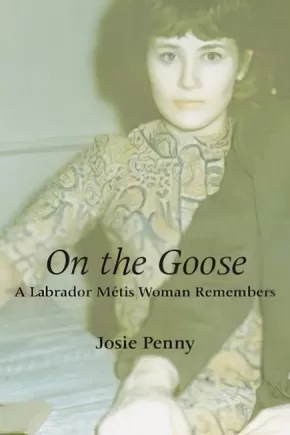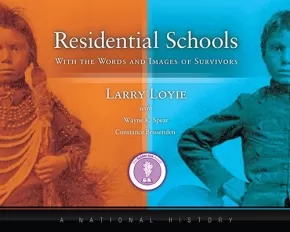Residential Schools / Reconciliation
To deepen and support your understanding of what the Indian Residential School experience was and its impact on Canada please download this document, They Came For the Children:
Click here to download: They Came For the Children
Project of Heart” is an inquiry based, hands-on, collaborative, inter-generational, artistic journey of seeking truth about the history of Aboriginal people in Canada. Its purpose is to:
Examine the history and legacy of Indian Residential Schools in Canada and to seek the truth about that history, leading to the acknowledgement of the extent of loss to former students, their families and communities.
Commemorate the lives of the thousands of Indigenous children who died as a result of the residential school experience.
Call Canadians to action, through social justice endeavors, to change our present and future history collectively.
Click here to visit the website: Project Of Heart
Synopsis:
A dramatic and lyrical coming-of-age novel about a young Blackfoot girl who grows up in the residential school system on the Canadian prairies.
Torn from her home and delivered to St. Mark’s Residential School for Girls by government decree, young Rose Marie finds herself in an alien universe where nothing of her previous life is tolerated, not even her Blackfoot name. For she has entered into the world of the Sisters of Brotherly Love, an order of nuns dedicated to saving the Indigenous children from damnation. Life under the sharp eye of Mother Grace, the Mother General, becomes an endless series of torments, from daily recitations and obligations to chronic sickness and inedible food. And then there are the beatings. All the feisty Rose Marie wants to do is escape from St. Mark’s. How her imagination soars as she dreams about her lost family on the Reserve, finding in her visions a healing spirit that touches her heart. But all too soon she starts to see other shapes in her dreams as well, shapes that warn her of unspoken dangers and mysteries that threaten to engulf her. And she has seen the rows of plain wooden crosses behind the school, reminding her that many students have never left here alive.
Set during the Second World War and the 1950s, Black Apple is an unforgettable, vividly rendered novel about two very different women whose worlds collide: an irrepressible young Blackfoot girl whose spirit cannot be destroyed, and an aging yet powerful nun who increasingly doubts the value of her life. It captures brilliantly the strange mix of cruelty and compassion in the residential schools, where young children are forbidden to speak their own languages and given Christian names. As Rose Marie matures, she finds increasingly that she knows only the life of the nuns, with its piety, hard work and self-denial. Why is it, then, that she is haunted by secret visions—of past crimes in the school that terrify her, of her dead mother, of the Indigenous life on the plains that has long vanished? Even the kind-hearted Sister Cilla is unable to calm her fears. And then, there is a miracle, or so Mother Grace says. Now Rose is thrust back into the outside world with only her wits to save her.
With a poet’s eye, Joan Crate creates brilliantly the many shadings of this heartbreaking novel, rendering perfectly the inner voices of Rose Marie and Mother Grace, and exploring the larger themes of belief and belonging, of faith and forgiveness.
Synopsis:
What is real reconciliation? This collection of essays from both Indigenous and non-Indigenous contributors from across Canada welcomes readers into a timely, healing conversation—one we've longed for but, before now, have had a hard time approaching.
These reflective and personal pieces come from journalists, writers, academics, visual artists, filmmakers, city planners, and lawyers, all of whom share their personal light-bulb moments regarding when and how they grappled with the harsh reality of colonization in Canada, and its harmful legacy. Without flinching, they look deeply and honestly at their own experiences and assumptions about race and racial divides in Canada in hopes that the rest of the country will do the same.
Featuring a candid conversation between CBC radio host Shelagh Rogers and Chief Justice Sinclair, this book acts as a call for all Canadians to make reconciliation and decolonization a priority, and reminds us that once we know the history, we all have the responsibility—and ability—to make things better.
Additional Information
224 pages | 5.75" x 8.50"
Edited by Danielle Metcalfe-Chenail
Authenticity Note: This work contains some essays from Indigenous contributors; therefore, it has been labelled as containing Authentic Indigenous Text.
Synopsis:
Reckoning is a triptych of three short plays: Witness is a dance-movement piece featuring a Truth and Reconciliation Commissioner who unravels as he confronts the brutal testimony of residential school survivors; in Daughter, the daughter of a teacher who was accused of rape seduces her father's accuser; and Survivor is a solo piece about a man preparing to commit suicide as a protest against the insufficiencies of the reconciliation process.
Agonizing, poignant, theatrical, hilarious, and true, Reckoning illuminates the difficulties of trying to come to terms with our country's painful past.
Educator Information
Recommended for grade 11 and 12 students for courses in performance arts, language arts, and English. Also useful for college and university courses in these areas.
Caution: explicit language and discussion of sexual and physical abuse.
Additional Information
66 pages | 5.00" x 8.00"
Synopsis:
The legacy of residential schools has haunted Canadians, yet little is known about the day and public schools where most Indigenous children were sent to be educated. In What We Learned, two generations of Tsimshian students – elders born in the 1930s and 1940s and middle-aged adults born in the 1950s and 1960s – add their recollections of attending day schools in northwestern British Columbia to contemporary discussions of Indigenous schooling in Canada. Their stories also invite readers to consider traditional Indigenous views of education that conceive of learning as a lifelong experience that takes place across multiple contexts.
Reviews
"Helen Raptis has written an important book about Tsimshian educational history. It is also a book about building research relationships with Indigenous communities. It is a work that recognizes, implicitly, that Indigenous history does not run in a straight line but is more liquid and circular. The journey to understand the Indigenous past requires deft canoe navigation through riptides and crosscurrents, past colonization’s half-submerged debris. Landing on the beach, one discovers no conventional separation between past, present, and future. There are only the stories—the stories and the sacred landscape." — Michael Marker, University of British Columbia, History of Education Quarterly, Vol. 57 No. 1, February 2017
Educator Information
Helen Raptis is an associate professor in the Faculty of Education at the University of Victoria. The members of the Tsimshian Nation are Mildred Roberts, Wally Miller, Sam Lockerby, Verna Inkster, Clifford Bolton, Harvey Wing, Charlotte Guno, Don Roberts Junior, Steve Roberts, Richard Roberts, Carol Sam, and Jim Roberts
Additional Information
224 pages | 6.00" x 9.00" | Paperback
Synopsis:
Deluxe redesign of the Gerald Lampert Award-winning classic.
This edition of A Really Good Brown Girl features a new Introduction by Lee Maracle, a new Afterword by the author, and a new cover and design by the renowned typographer Robert Bringhurst.
First published in 1996, A Really Good Brown Girl is a fierce, honest and courageous account of what it takes to grow into one's self and one's Métis heritage in the face of myriad institutional and cultural obstacles. It is an indispensable contribution to Canadian literature.
"No other book so exonerates us, elevates us and at the same time indicts Canada in language so eloquent it almost hurts to hear it." --Lee Maracle, from the Introduction
Educator Information
This resource is also available in French: Une vraie bonne petite Métisse.
Additional Information
112 pages | 6.00" x 8.50"
Synopsis:
This is the Final Report of Canada's Truth and Reconciliation Commission and its six-year investigation of the residential school system for Aboriginal youth and the legacy of these schools. This report, the summary volume, includes the history of residential schools, the legacy of that school system, and the full text of the Commission's 94 recommendations for action to address that legacy.
This report lays bare a part of Canada's history that until recently was little-known to most non-Aboriginal Canadians. The Commission discusses the logic of the colonization of Canada's territories, and why and how policy and practice developed to end the existence of distinct societies of Aboriginal peoples.
Using brief excerpts from the powerful testimony heard from Survivors, this report documents the residential school system which forced children into institutions where they were forbidden to speak their language, required to discard their clothing in favour of institutional wear, given inadequate food, housed in inferior and fire-prone buildings, required to work when they should have been studying, and subjected to emotional, psychological and often physical abuse. In this setting, cruel punishments were all too common, as was sexual abuse.
More than 30,000 Survivors have been compensated financially by the Government of Canada for their experiences in residential schools, but the legacy of this experience is ongoing today. This report explains the links to high rates of Aboriginal children being taken from their families, abuse of drugs and alcohol, and high rates of suicide. The report documents the drastic decline in the presence of Aboriginal languages, even as Survivors and others work to maintain their distinctive cultures, traditions, and governance.
The report offers 94 calls to action on the part of governments, churches, public institutions and non-Aboriginal Canadians as a path to meaningful reconciliation of Canada today with Aboriginal citizens. Even though the historical experience of residential schools constituted an act of cultural genocide by Canadian government authorities, the United Nation's declaration of the rights of aboriginal peoples and the specific recommendations of the Commission offer a path to move from apology for these events to true reconciliation that can be embraced by all Canadians.
Synopsis:
This is the story of Nena.
Nena is the Cree word for "me" and this book is Irene Young's story of her search for "knowing nena."
Nena's story begins with her carefree childhood and adolescence in the community of Opaskwayak Cree Nation, and continues on through the intergenerational effects of residential school trauma. The book concludes with Nena's elder phase and profiles of her helpers, to whom she is passing on the traditional teachings of her people.
Synopsis:
The Education of Augie Merasty offers a courageous and intimate chronicle of life in a residential school.
Now a retired fisherman and trapper, Joseph A. (Augie) Merasty was one of an estimated 150,000 First Nations, Inuit, and Metis children who were taken from their families and sent to government-funded, church-run schools, where they were subjected to a policy of "aggressive assimiliation."As Merasty recounts, these schools did more than attempt to mold children in the ways of white society. They were taught to be ashamed of their native heritage and, as he experienced, often suffered physical and sexual abuse.Even as he looks back on this painful part of his childhood, Merasty’s generous and authentic voice shines through.
Awards
- 2016 Burt Award Second Place Winner
Reviews
"At 86, Augie Merasty has been a lot of things: Father. Son. Outdoorsman. Homeless. But now he is a first-time author, and the voice of a generation of residential-school survivors.... The Education of Augie Merasty is the tale of a man not only haunted by his past, but haunted by the fundamental need to tell his own story... one of the most important titles to be published this spring." —Globe and Mail
"[Augie] wrote his memoir to show people the unbelievable atrocities suffered by so many Indigenous people and in the hope that others would come forward to tell their stories of what happened in the residential schools." —Eagle Feather News
"This book is so much bigger than its small size. It is a path to healing. We cannot change history, but we can acknowledge it, learn about it, and remember it." —Prairies North
"The Education of Augie Merasty might be a small book, but it carries a punch to it that all Canadian need to read and understand." —Rabble
"A truly extraordinary memoir by a truly extraordinary man." —Midwest Book Review
"Carpenter's introduction and afterword... allow us to come to better understand Augie's 'sometimes chaotic, sometimes heroic aftermath of his life,' as Carpenter describes his last decade. Where Augie focuses on physical scars, Carpenter's experiences with Augie illustrate the long-term impacts on his residential school experience. And with The Education of Augie Merasty, he helps Merasty--who could be any number of individuals we each pass on the street--find his voice." —Active History
"Unsettling and profound, and good." —Blacklock's Reporter
"In this book I have seen horror through eyes of a child." —James Daschuk, author of Clearing the Plains
"A story in which our entire nation has an obscure and dark complicity." —David Carpenter, co-author of The Education of Augie Merasty and author of The Gold and other books
Educator Information
The Canadian Indigenous Books for Schools list recommends this resource for Grades 9-12 English Language Arts and Social Studies.
Caution: Mature subject matter and descriptions of discrimination, sexual/physical violence, and substance abuse.
Additional Information
105 pages | 4.25" x 6.53" | Hardcover
Synopsis:
The compelling autobiography of Nick Sibbeston, residential school survivor and one of the North’s most influential leaders.
Growing up in a remote Northern community, Nick Sibbeston had little reason to believe he would one day fulfill his mother’s ambition of holding a career where he would “wear a white shirt.” Torn away from his family and placed in residential school at the age of five, Sibbeston endured loneliness, callous treatment and sexual assault by an older boy, but discovered a love of learning that would compel him to complete a law degree and pursue a career in politics.
As a young, firebrand politician, Sibbeston played an instrumental role during a critical moment in Northwest Territories politics, advocating tirelessly to support the economic and political development of First Nations people in the North, and participating in early discussions of the separation of Nunavut. Sibbeston’s career advanced in great strides, first as an MLA, then one of Canada’s first Aboriginal lawyers, then as a cabinet minister and eventually premier of the Northwest Territories. Finally, he was appointed to the Senate of Canada, where he continues to represent the people of Canada’s North, not least in advocating for the generations affected by residential school policies.
Although his years at residential school compelled Sibbeston to fight tirelessly for the rights of Aboriginal northerners, they also left a mark on his mental health, fuelling continual battles with anxiety, depression and addiction. It was only in later life that healing began to take place, as he battled his demons openly, supported not just by the medical community but also by his strong faith and the love of his wife and family.
Nick Sibbeston is a lawyer, distinguished member of the Northwest Territories (NWT) Legislative Assembly and a former premier. In 1970, Mr. Sibbeston was elected to a four-year term on the North West Territorial Council. And from 1979–91, he was elected to the NWT Legislative Assembly. Sibbeston has worked for the Government of NWT as Justice Specialist and as a Public Administrator for Deh Cho Health & Social Services and served four years on the Canadian Human Rights Panel/Tribunal. He is a current member of the Senate committees on Aboriginal Peoples, and Energy, Environment and Natural Resources. Mr. Sibbeston and his wife, Karen, live in Fort Simpson, NWT.
Additional Information
344 pages | 6.41" x 9.25"
Synopsis:
In June 1967, Norway House Indian Residential School of Manitoba closed its doors after a somewhat questionable past. In 1954, when Florence Kaefer was just nineteen, she accepted a job as a teacher at Norway House. Unaware of the difficult conditions the students were enduring, Florence and her fellow teachers nurtured a school full of lonely and homesick young children. After a few years, Florence moved to Vancouver Island with her new husband where she continued to teach, thinking often of the children of Norway House.
Many years later, after the death of her husband, Florence unexpectedly reconnected with one of her Norway House students, Edward Gamblin. Edward had been only five when he was brought to Norway House and Florence remembered him as a shy and polite young boy. Leaving the school at sixteen, Edward faced some challenges in a world that was both hostile and unfamiliar to him. But Edward found success and solace in his career as a musician, writing songs about the many political issues facing Aboriginal people in Canada. On a trip to Manitoba, Florence discovered Edward's music. She was captivated by his voice, but shocked to hear him singing about the abuse he and the other children had been subjected to at Norway House.
Motivated to apologize on behalf of the school and her colleagues, Florence contacted Edward. "Yes, I remember you and I accept your apology," Edward told her. "Reconciliation will not be one grand, finite act. It will be a multitude of small acts and gestures played out between individuals." The story of their personal reconciliation is both heartfelt and heartbreaking as Edward begins to share his painful truths with his family, Florence and the media. Three years after Edward's death in in 2010, Florence has continued to advocate for truth and reconciliation. BACK TO THE RED ROAD is more than one man's story: it is the story of our nation and how healing can begin, one friendship, one apology at a time.
Additional Information
|
Synopsis:
Mink is a witness, a shape shifter, compelled to follow the story that has ensnared Celia and her village, on the West coast of Vancouver Island in Nu:Chahlnuth territory. Celia is a seer who - despite being convinced she's a little "off" - must heal her village with the assistance of her sister, her mother and father, and her nephews. While mink is visiting, a double-headed sea serpent falls off the house front during a fierce storm. The old snake, ostracized from the village decades earlier, has left his terrible influence on Amos, a residential school survivor. The occurrence signals the unfolding of an ordeal that pulls Celia out of her reveries and into the tragedy of her cousin's granddaughter. Each one of Celia's family becomes involved in creating a greater solution than merely attending to her cousin's granddaughter. Celia's Song relates one Nu:Chahlnuth family's harrowing experiences over several generations, after the brutality, interference, and neglect resulting from contact with Europeans.
Educator Information
Grade 11/12 English First Peoples resource for the unit Further Steps toward Reconciliation.
Additional Information
280 pages | 5.50" x 8.50"
Synopsis:
In Indian School Road, journalist Chris Benjamin tackles the controversial and tragic history of the Shubenacadie Indian Residential School, its predecessors, and its lasting effects, giving voice to multiple perspectives for the first time. Benjamin integrates research, interviews, and testimonies to guide readers through the varied experiences of students, principals, and teachers over the school’s nearly forty years of operation (1930–1967) and beyond. Exposing the raw wounds of Truth and Reconciliation as well as the struggle for an inclusive Mi’kmaw education system, Indian School Road is a comprehensive and compassionate narrative history of the school that uneducated hundreds of Aboriginal children.
Synopsis:
Imagine a world in which people see themselves as embedded in the natural order, with ethical responsibilities not only toward each other, but also toward rocks, trees, water and all nature. Imagine seeing yourself not as a master of Creation, but as the most humble, dependent and vulnerable part.
Rupert Ross explores this indigenous world view and the determination of indigenous thinkers to restore it to full prominence today. He comes to understand that an appreciation of this perspective is vital to understanding the destructive forces of colonization. As a former Crown Attorney in northern Ontario, Ross witnessed many of these forces. He examines them here with a special focus on residential schools and their power to destabilize entire communities long after the last school has closed. With help from many indigenous authors, he explores their emerging conviction that healing is now better described as “decolonization therapy.” And the key to healing, they assert, is a return to the traditional indigenous world view.
The author of two previous bestsellers on indigenous themes, Dancing with a Ghost and Returning to the Teachings, Ross shares his continuing personal journey into traditional understanding with all of the confusion, delight and exhilaration of learning to see the world in a different way.
Ross sees the beginning of a vibrant future for indigenous people across Canada as they begin to restore their own definition of a “healthy person” and bring that indigenous wellness into being once again. Indigenous Healing is a hopeful book, not only for indigenous people, but for all others open to accepting some of their ancient lessons about who we might choose to be.
Additional Information
344 pages | 5.25" x 8.20" | Paperback
Synopsis:
Josie Penny's life as part of a loving Métis family in an isolated corner of Labrador changed dramatically when she was taken away to a residential school. Abused by the students, Josie became increasingly angry and isolated from her family and community as she grew into her teens. At seventeen she left for Goose Bay to make her fortune and start her own life.
On the Goose is the story of how Josie came to terms with her feelings of helplessness and isolation as she began to understand why she could not feel or express love. Josie Penny's memoir is an inspiring true story of how love and hard work helped one woman triumph over adversity.
Synopsis:
Residential Schools, With the Words and Images of Survivors, A National History honours the survivors, the former students, who attended residential schools. Designed for the general reader this accessible, 112-page history offers a first-person perspective of the residential school system in Canada, as it shares the memories of more than 70 survivors from across Canada as well as 125 archival and contemporary images (65 black & white photographs, 51 colour, some never before published).
This essential volume written by award-winning author Larry Loyie (Cree), a survivor of St. Bernard Mission residential school in Grouard, AB, and co-authored by Constance Brissenden and Wayne K. Spear (Mohawk), reflects the ongoing commitment of this team to express the truths about residential school experiences and to honour the survivors whose voices are shared in this book.
Along with the voices, readers will be engaged by the evocative, archival photographs provided by the Shingwauk Residential Schools Centre with the assistance of curator Krista McCracken. The book begins with the moving introduction by Larry Loyie, and moves to seven chapters that explore the purpose of this school system; cultures and traditions; leaving home; life at school the half-day system; the dark side of the schools; friendship and laughter coping with a new life; changing world–the healing begins; and an afterword. A detailed, full colour map showing residential schools, timeline with key dates, glossary, and a helpful index (including names of survivors and schools) make this vital resource a must-have for secondary, college, and universities, libraries, and the general reader.
Reviews
"A broad and comprehensive review of the history of First Nations, Métis, and Inuit peoples in Canada told from the perspective of First Peoples in a very accessible way. Any educator, regardless of personal background or heritage, would find this timely resource very useful in any classroom." — Gary Fenn and Domenic Bellissimo, executive assistants, Ontario Secondary School Teachers’ Federation
"Written with a gentle hand, this book describes a history that few Canadians understand or even know about. From the first page, those in search of the truth are engaged in a journey of learning, as they come to understand the true battle of Aboriginal peoples to preserve their cultures and pride. This story is a true account of resiliency and human spirit." — Tracy Zweifel, executive director, Sagitawa Friendship Society, Alberta
Awards
- 2016 Winner of Golden Oak award in Ontario's Forest of Reading program
Educator Information
This must-have resource includes a detailed, full-colour map showing residential schools, a timeline with key dates, and a glossary.
Recommended for grades 7-12, but would still be useful for adults and college/university courses studying residential schools and Indigenous history.
This book has been evaluated and approved by ERAC (Educational Resource Acquisition Consortium, British Columbia).
Additional Information
112 pages | 10.43" x 8.26"

